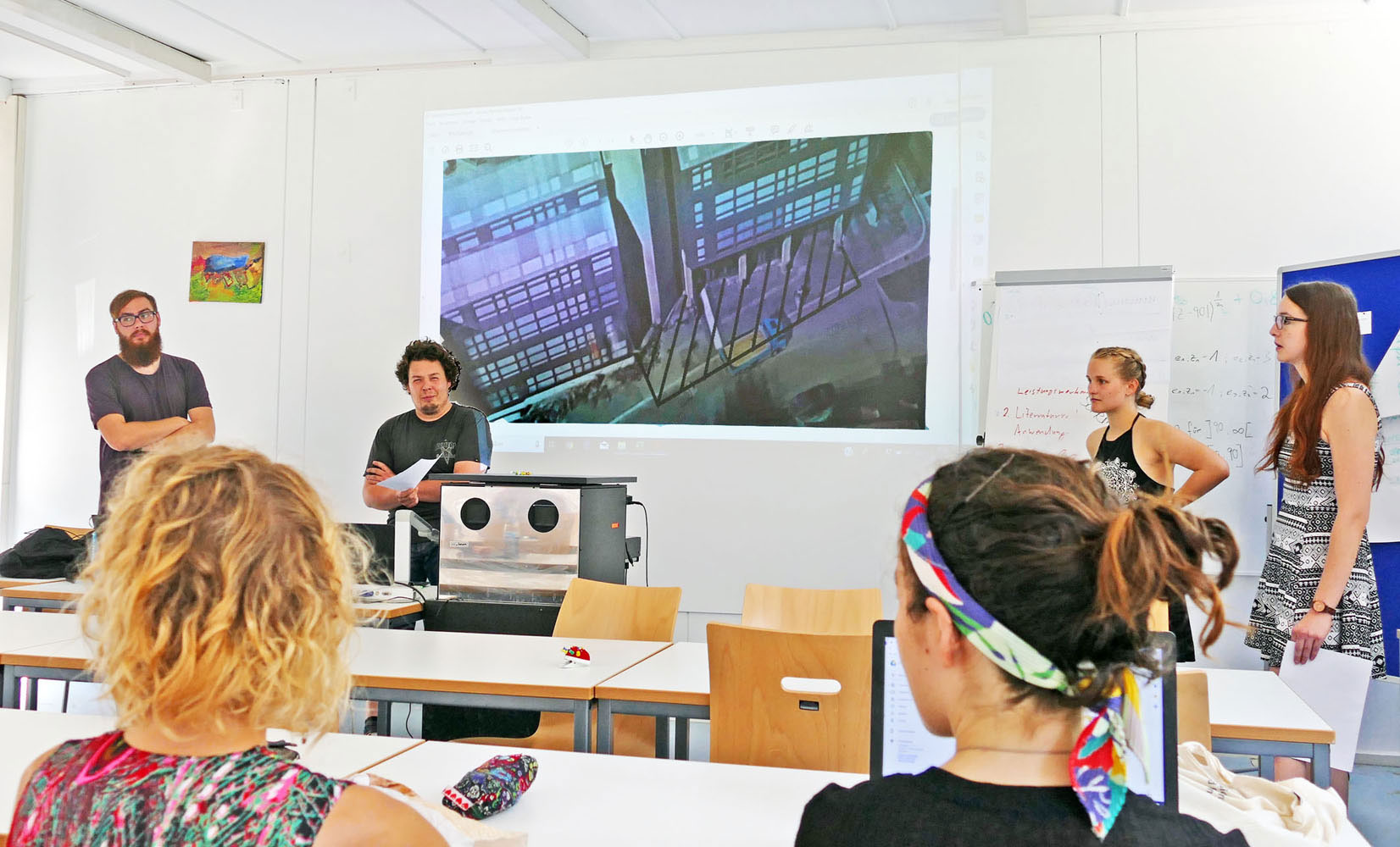Behavior-oriented projects can have a positive impact on individual behavior
18 students of the Bachelor's programme in Applied Social Sciences at the Würzburg-Schweinfurt University of Applied Sciences carried out two behavioural projects: On the one hand, they wanted to persuade cafeteria visitors to disinfect their hands, on the other hand they wanted to persuade fellow students to dispose of the filters of the smoked cigarettes in the waste bins. The projects are part of the seminar "World Improvement Project", supervised by Professor Dr. Christoph Bördlein. Many students are committed to making the world a better place, both inside and outside their studies, by working on initiatives or otherwise helping good causes. However, this commitment often leaves open whether the behaviour of fellow citizens has actually been changed, whether they cause less waste, do more for the environment or show more consideration for others. Through the projects, students could learn that their interventions lead to a lasting change in people's behaviour in public spaces, rather than simply hoping that their commitment will bear fruit. In addition, they can methodically demonstrate how successful they have been, which interventions have had an effect and which have not. It was therefore a matter of achieving good things and being able to prove them.
During the study, the first team dedicated to "species-appropriate tip disposal" counted every day the number of cigarette scraps in their selected intervention area in front of the main entrance of the FHWS in Münzstraße 12. The aim of the intervention was to motivate the fellow students smoking there to throw their cigarette butts into the ash bin instead of on the floor. As a first intervention, communication design student Olga Pieritz designed stickers for the rubbish bins and an information poster to be displayed in the lecture halls. These posters contained information about the damage that cigarette filters cause to the environment. The stickers on the rubbish bins encouraged smokers to take a closer look at the information on the poster. In front of the main entrance, the litter bin "called" for "species-appropriate dumping". In another intervention, students with arrows in the smoking area pointed to the waste bins. Those who threw their cigarette butts into the bin instead of on the floor were rewarded with a green "thank you" arrow.
The effect of the interventions can be seen from the results chart. The two interventions reduced the average number of cigarettes lying on the floor from over forty to less than twenty a day.
This suggests that information and personal prompts can contribute to individual behavioural change and insight among smokers. Although the City of Würzburg refers to Section 3 of the Security Ordinance, which stipulates that a warning of ten euros can be issued for "contamination by carelessly discarded cigarette butts in front of schools, bus stops, supermarkets, restaurants and pubs", control poses a major challenge. The student initiative for nature and sustainability at the FHWS "S.I.N.N." would like to continue this initiative (S.I.N.N.).
The second project related to the donors of disinfectant liquid in the refectory, which had already been set up for the first time by the student group of the last summer semester. In a first step, the number of visitors was recorded, who disinfected their hands without any reference to the new cleaning possibilities. Then the students, who were supervised by the Italian master student Maria Rosa Miccoli, made a first intervention. This consisted of red arrows pointing to the respective hand disinfection devices, accompanied by a poster humorously calling for the use of the disinfectant. In the second phase of the intervention, those who disinfected their hands received positive feedback from tablets installed above the disinfectors. When a guest at the Mensagast took a disinfectant, he popped a picture on the tablet monitor above the donor, thanking him/her for it (the tablets were remotely controlled by the students). In a scientific evaluation, the team was able to determine a 20% increase in the proportion of cafeteria visitors who disinfected their hands. However, the students also noticed disadvantages of the intervention. The fact that the two devices and the tablets were quite dark meant that they stood out only slightly from the background of the disinfectant dispensers. Otherwise, according to the students, an even higher number of users would probably have been expected.
The students concluded that people should be motivated less by punitive measures and more by positive reinforcement of their behaviour. They would then follow requests if the meaning or context was explained to them and they understood what their change of behaviour would bring about. In general, it could also be observed that if the effort required for behaviour was great, fewer people would be persuaded to take the desired actions.








